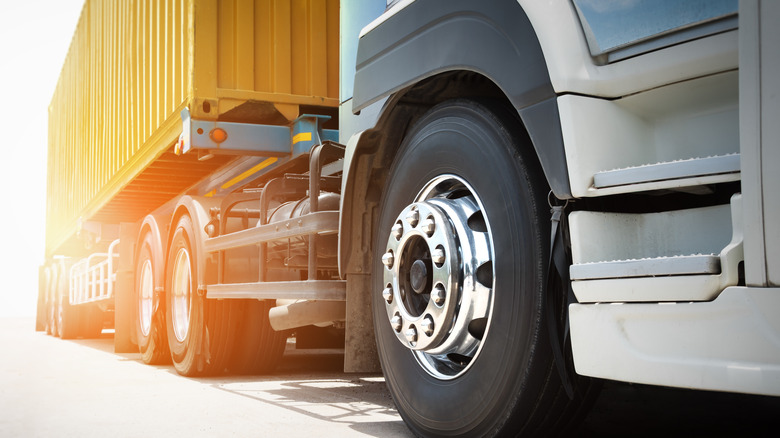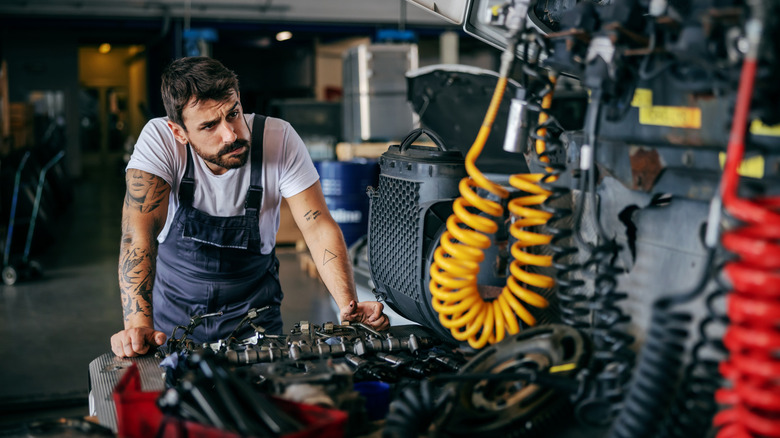You’re driving a loaded diesel rig down a mountain pass, foot hovering over the brake pedal, heart racing. How do you slow 20,000 pounds safely without cooking your brakes? Cue the exhaust brake -– the unsung hero of diesel descents.
Think of it like this — an exhaust brake slows the truck by trapping exhaust gases, forcing the engine to work against back pressure. That resistance helps decelerate the vehicle, easing the load on your regular brakes, turning the engine into its own air-powered anchor. This isn’t guesswork – back pressure during exhaust braking can reach up to 60 PSI, generating negative torque to support service brakes on long descents. Diesel exhaust brakes are favored over compression brakes because they still get serious stopping muscle minus the ear-splitting racket that Jake brakes are infamous for.
Modern diesel setups even modulate this back pressure electronically, smoothing braking across RPM ranges. This tech is ideal for diesels because gasoline engines naturally slow down when you lift off the gas. Diesels don’t do that -– they coast unless you intervene with back pressure. Most commercial-grade diesel trucks come standard with exhaust brakes precisely for this reason — they’re practical, quiet, and crucial when hauling or descending.
Why it works on diesel engines (and not gas)
Gasoline engines don’t usually need this kind of braking help. They naturally create vacuum in the intake manifold when you let off the gas, which helps create engine braking to slow the vehicle down. Diesels, on the other hand, don’t work that way. There’s no throttle plate controlling airflow, so when you take your foot off the pedal, air keeps rushing in. That means less built-in engine braking, which becomes a bit of a problem on a big rig barreling down a mountain pass.
That’s where exhaust brakes step in. Instead of relying on the engine’s design to slow things down, they artificially create resistance by choking the exhaust flow. Since diesel engines are built to handle serious internal pressure thanks to their high compression ratios, they can take this kind of extra stress without flinching. The result is smoother, more predictable deceleration, especially when you’re hauling a few tons of steel behind you.
Drivers like them because they’re quieter than traditional compression brakes, which have a reputation for making a city block sound like a battleground. Exhaust brakes? It’s the silent type and far less drama. For fleet operators and RV owners, that reduced noise matters. Not just for comfort, but also for the neighbors who’d rather not hear your descent from two miles away.
The real-world benefits (and downsides)
So, should every diesel have an exhaust brake? Not necessarily. It really depends on how you drive. If you’re mostly cruising flat highways or city streets with moderate loads, your standard brakes are probably fine. However, if you’re towing a fifth wheel through the Rockies, or operating a heavy-duty rig with frequent elevation changes, then yeah — an exhaust brake starts to make a lot of sense.
Its benefit is not just about safety. Though keeping your brakes from overheating on a long downhill stretch is certainly a big part of it. It’s also about saving money in the long run. Every time your exhaust brake helps slow the truck, your regular brake pads and rotors get a little break. Less wear. Fewer replacements. Less downtime. For commercial drivers, that kind of reliability adds up fast. Exhaust brake installation is relatively simple — it just taps into the exhaust system your truck already has. No need for extra hydraulics, air lines, or fancy factory installs.
Some modern trucks even integrate exhaust braking into the transmission or cruise control logic. You set your speed, and the system handles deceleration automatically using a mix of gear changes and exhaust pressure. No fuss, no pedal stomping. Just smooth, controlled descents.




